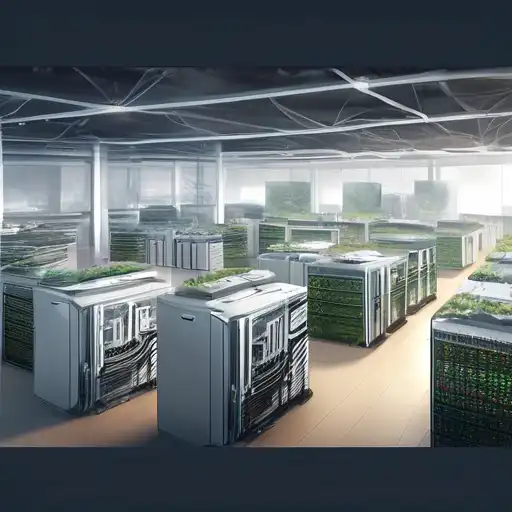Introduction to Sustainable Hardware in Tech
In today's rapidly evolving tech landscape, sustainability has become a cornerstone for innovation. Tech companies are increasingly adopting sustainable hardware solutions to reduce environmental impact while maintaining high performance. This article explores the latest in eco-friendly hardware innovations that are setting new standards for the industry.
Why Sustainable Hardware Matters
The tech industry is notorious for its significant environmental footprint, from energy consumption to electronic waste. Sustainable hardware solutions offer a path to mitigate these impacts, providing benefits such as reduced energy usage, longer product lifespans, and recyclability. By prioritizing sustainability, tech companies can not only contribute to environmental preservation but also achieve cost savings and enhance brand reputation.
Key Sustainable Hardware Solutions
Energy-Efficient Processors
One of the most impactful areas for sustainability in tech is the development of energy-efficient processors. These processors are designed to deliver high performance while consuming less power, significantly reducing the energy demands of data centers and personal computing devices.
Modular Design for Longer Lifespan
Modular hardware design allows users to upgrade individual components rather than replacing entire devices. This approach not only extends the lifespan of tech products but also reduces electronic waste, making it a win-win for consumers and the environment.
Recyclable Materials
Many tech companies are now incorporating recyclable materials into their products. From biodegradable casings to metals and plastics that can be easily recycled, these materials help ensure that products don't end up in landfills at the end of their life cycle.
Implementing Sustainable Practices
Adopting sustainable hardware solutions requires a comprehensive approach. Tech companies can start by conducting lifecycle assessments of their products to identify areas for improvement. Partnering with suppliers who prioritize sustainability and investing in research and development for greener technologies are also critical steps.
Case Studies: Leading the Way in Sustainability
Several tech giants have already made significant strides in sustainability. For example, some have committed to achieving carbon neutrality across their supply chains, while others have introduced take-back programs to recycle old devices. These initiatives not only demonstrate the feasibility of sustainable hardware solutions but also inspire other companies to follow suit.
Conclusion
Sustainable hardware solutions represent the future of the tech industry. By embracing energy efficiency, modular design, and recyclable materials, tech companies can play a pivotal role in addressing environmental challenges. The transition to sustainable practices is not just an ethical imperative but a strategic one, offering long-term benefits for businesses and the planet alike.
